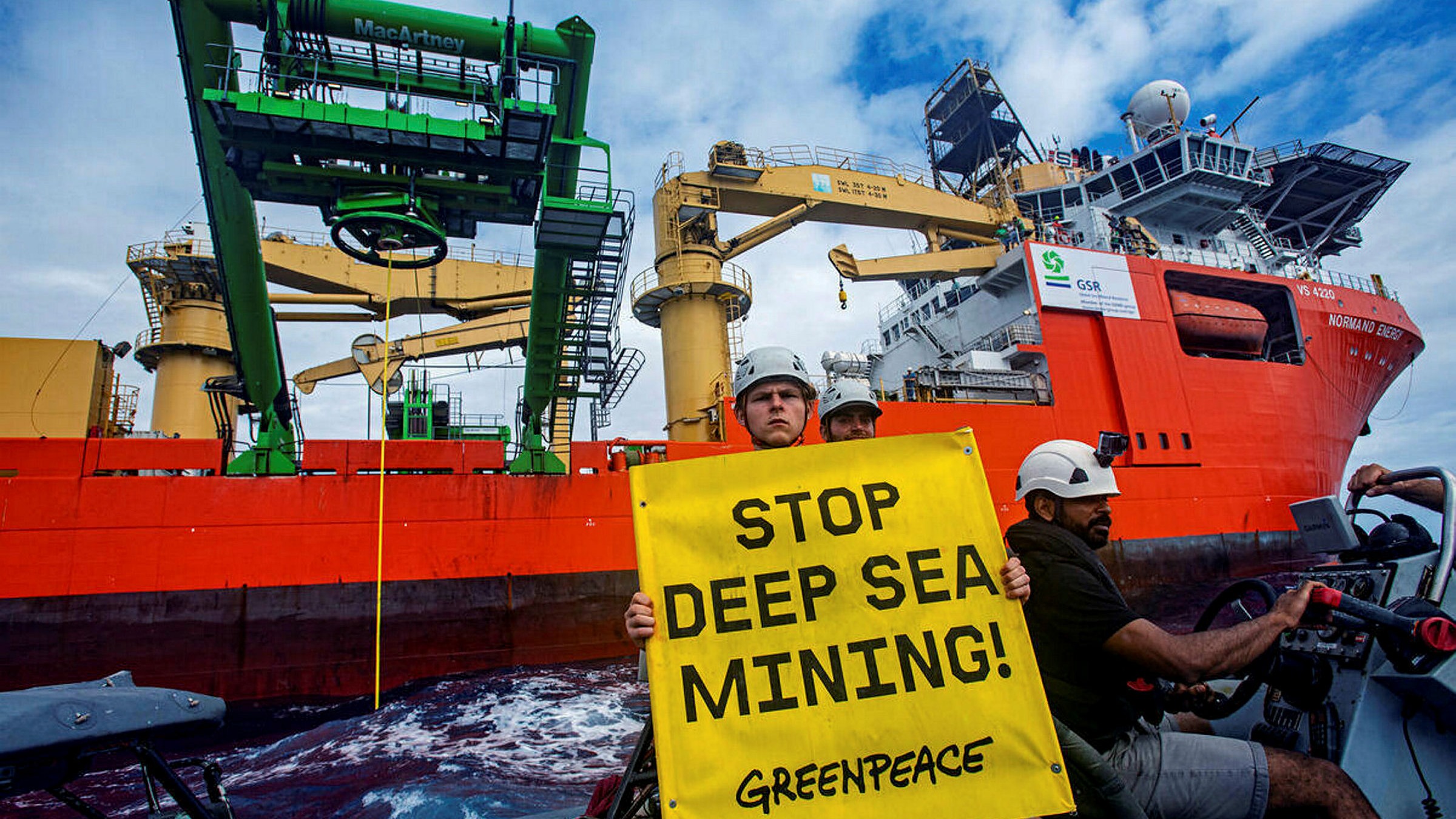Why we need a moratorium on deep seabed mining
Saturday 26 November 2022 | Written by Te Ipukarea Society | Published in Opinion

Greenpeace activists protest against deep-sea mining in the Pacific. DeepGreen says the deep sea has enough metal to electrify the entire global fleet of vehicles. Picture: Marten van Dijl/Greenpeace/22112550
Do we have to trash the ocean to save our climate? No, we do not. New analysis shows how technological innovation and circular economy models can meet the demand for minerals without deep seabed mining.
The 2022 United Nations Climate Change Conference, more commonly referred to as COP27, was recently held in Egypt.
Countries, including the Cook Islands, came together to agree on actions towards achieving the world’s collective climate goals.
In a national leaders statement, presented by the Cook Islands Prime Minister, Mark Brown in his speech said that “some of us have taken years to gain a better understanding of how our ocean will save us and help save our planet”.
We know what we are doing to protect ourselves and to protect our ocean. However, do we really know what we are doing and what the actual impacts of deep sea mining will be? The large majority of scientists that study the deep sea all agree that we do not know enough, and that deep seabed mining should not be considered in the near future
We get reassurances from those pushing for deep sea mining that it will be less impactful than mining on land, but there is no hard evidence to support this. Mining on land does cause massive amounts of carbon to be released into the atmosphere and the ocean absorbs a significant amount of these carbon emissions. We need to gain a better understanding of our deep sea ecosystems and how they function before embarking on a deep sea mining industry that may impact the ability of our ocean to absorb this carbon.
In order to better understand how our deep-sea ecosystem functions, more effort needs to be put into attracting independent research. Currently, deep sea research within our waters is only being conducted by the mining companies who have a vested interest in extracting these valuable minerals that have taken millions of years to form.
What is the likelihood that a deep sea mining company will share any information they might gather that might reduce the chances of them getting a commercial exploitation licence?
Independent research will ensure that the information and data that is being collected about our deep-sea environment is transparent.
Though there are scientists who are actively studying deep sea ecosystems, there remains a very large gap in our understanding of the deep sea ecosystems and its biological functions.
Scientists have barely touched the surface in gaining knowledge about what biodiversity lies on the seafloor. While knowledge of the deep sea has advanced in recent decades, scientists are still trying to learn how these ecosystems are connected and the impact that mining may have over longer periods of time.
If deep-sea mining proceeds, it needs to be approached in a precautionary and step-wise manner to allow for the development of new knowledge and skills.
Each step needs to be subject to explicit environmental management goals, monitoring protocols, and binding standards to avoid significant environmental harm and the loss of biodiversity.
The International Seabed Authority (ISA) is meant to ensure the protection of the deep sea environment. However, the organisation is actually facilitating the development of the deep-sea mining industry. This appears to be a conflict of interest in the eyes of its critics.
There are alternatives to deep seabed mining for a green transition that do not risk the health of our ocean. Individuals can help by not conforming to the ‘I must have the latest iPhone’ attitude. They can also make more use of public transport, bicycles and car-pooling, overall saving individuals’ money. Businesses may consider investing in innovation, recycling and durability.
A healthy ocean is essential if we are to keep our climate in balance, feed a growing population, support economic development, and protect habitats and treasured wildlife.
Deep seabed mining for “golden apples” could demolish fragile ecosystems that have taken millions of years to form and that we have yet to learn about.
If we really do know what we are doing to protect ourselves and to protect our oceans, we should not be rushing into a destructive industry such as deep-sea mining. A moratorium will give the time we need to learn more about the impacts and the alternatives.














































